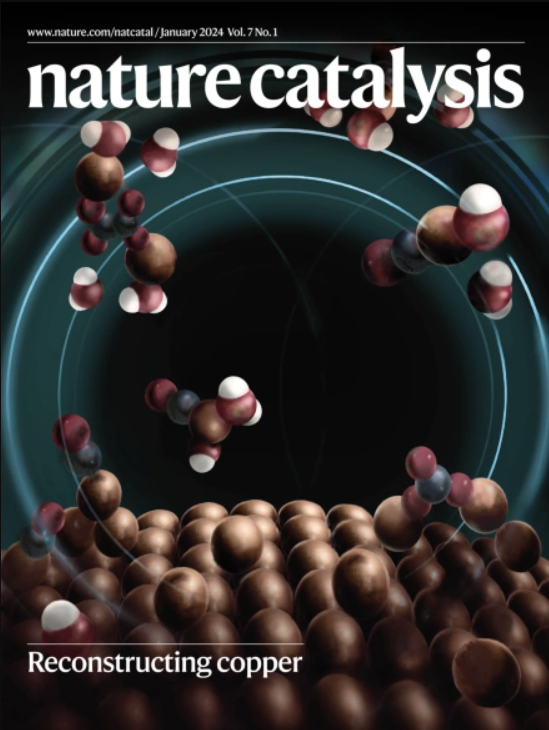Ambient solar thermal catalysis for polyolefin upcycling using copper encapsulated in silicon nanosheets and chloroaluminate ionic liquid
IF 44.6
1区 化学
Q1 CHEMISTRY, PHYSICAL
引用次数: 0
Abstract
The accumulation of plastic waste has become a global issue. Socially and industrially viable, sustainable technical solutions are therefore required. Here we report a solar thermal catalytic system for polyolefins upcycling using copper nanoparticles encapsulated by stacked two-dimensional silicon. In a chloroaluminate ionic liquid solvent, unlike conventional thermal techniques, the upcycling can proceed under a mild temperature (55 °C) created photothermally under 4 sun irradiation. The polyethylene can be completely transformed into distinct and separable fractions of alkanes (C3–C7) and cyclic hydrocarbons (C8–C26) within hours, with a total yield of 91%. Mechanistic studies show a pathway involved two β-scissions of C–C bonds and a rapid cyclization. The approach offers versatility in the upcycling of various real-world polyolefin waste and features excellent feasibility in outdoor practices. The analyses of a conceptual upcycling facility using this technology showcase its appeal in both economic and eco-friendliness. Solution-based methods exist to upcycle waste polyolefins, although these resort to the use of co-reactants and require non-negligible energy inputs. Here the authors show how a solar thermal catalytic system based on copper particles encapsulated within a 2D Si material can strongly alleviate such issues.


利用硅纳米片封装铜和氯铝酸盐离子液体进行聚烯烃升级回收的环境太阳热催化
塑料垃圾的堆积已经成为一个全球性问题。因此,需要社会和工业上可行的、可持续的技术解决方案。本文报道了一种聚烯烃升级循环的太阳能热催化系统,该系统使用堆积二维硅封装的铜纳米颗粒。在氯铝酸盐离子液体溶剂中,与传统的热技术不同,升级回收可以在温和的温度(55°C)下进行,在4太阳照射下光热产生。聚乙烯可在数小时内完全转化为烷烃(C3-C7)和环烃(C8-C26)的不同可分离组分,总收率达91%。机制研究表明,该途径涉及两个β- c键断裂和一个快速环化。该方法为各种真实世界的聚烯烃废物的升级回收提供了多功能性,并在户外实践中具有极好的可行性。对使用该技术的概念性升级回收设施的分析显示了其在经济和生态友好方面的吸引力。
本文章由计算机程序翻译,如有差异,请以英文原文为准。
求助全文
约1分钟内获得全文
求助全文
来源期刊

Nature Catalysis
Chemical Engineering-Bioengineering
CiteScore
52.10
自引率
1.10%
发文量
140
期刊介绍:
Nature Catalysis serves as a platform for researchers across chemistry and related fields, focusing on homogeneous catalysis, heterogeneous catalysis, and biocatalysts, encompassing both fundamental and applied studies. With a particular emphasis on advancing sustainable industries and processes, the journal provides comprehensive coverage of catalysis research, appealing to scientists, engineers, and researchers in academia and industry.
Maintaining the high standards of the Nature brand, Nature Catalysis boasts a dedicated team of professional editors, rigorous peer-review processes, and swift publication times, ensuring editorial independence and quality. The journal publishes work spanning heterogeneous catalysis, homogeneous catalysis, and biocatalysis, covering areas such as catalytic synthesis, mechanisms, characterization, computational studies, nanoparticle catalysis, electrocatalysis, photocatalysis, environmental catalysis, asymmetric catalysis, and various forms of organocatalysis.
 求助内容:
求助内容: 应助结果提醒方式:
应助结果提醒方式:


